2022-23
Visiting Faculty Fellows
 Sameena Hasan Siddiqui, Comparative Religions and Civilizations, Jamia Millia Islamia
Sameena Hasan Siddiqui, Comparative Religions and Civilizations, Jamia Millia Islamia
Sameena Hasan Siddiqui is a Professor and former Director at the Centre for Comparative Religions and Civilizations, Jamia Millia Islamia, New Delhi, India. She studied at St. Stephen’s College, University of Delhi, and completed her Ph.D from Arts Faculty, University of Delhi. Her area of specialization is socio-cultural history of Medieval India with special focus on Sufism.
 Emily McWilliams, Philosophy, Duke Kunshan University
Emily McWilliams, Philosophy, Duke Kunshan University
Emily McWilliams is an Assistant Professor of Philosophy at Duke Kunshan University, in Kunshan, China. She received her Ph.D. in philosophy from Harvard University in 2016. Her main research interests are in epistemic normativity, and social and political epistemology. During her time at the Centre for Ethics, she will be working on issues related to epistemic injustice and political epistemology.
Postdoctoral Fellows
 Federica Berdini (she/they), PhD, Philosophy, University of Bologna
Federica Berdini (she/they), PhD, Philosophy, University of Bologna
Federica’s research focuses on human agency and its societal and interpersonal recognition and attribution, and brings together ethics, philosophical and moral psychology, as well as feminist and social philosophy. In particular, she is interested in cases of agency exercised in non-ideal conditions or by ‘imperfect’ agents. Her most recent project, titled “The Nature and Ethics of Coping”, provides a philosophical account of the psychological phenomena of coping with stressful, traumatic, and challenging situations, and explores the ethical dimensions of such situations. Previously, Federica has been a postdoctoral fellow at the Centre de Recherche en Éthique in Montréal and at the Ludwig Maximilian University in Munich. She is also co-founder of the Italian Society for Women in Philosophy (SWIP Italia), where she served as member of the Executive Board and as coordinator of a mentoring program for women in philosophy.
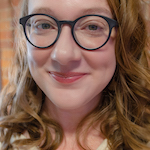 Sarah (Sadie) Warren, PhD, Philosophy, Emory University
Sarah (Sadie) Warren, PhD, Philosophy, Emory University
Sarah is a Postdoctoral Fellow with the Centre for Ethics. She received her PhD in Philosophy from Emory University, where her dissertation examined philosophical contributions to thinking through the environmental crisis and its relationship to self-world understanding, moving between eco-phenomenology, new materialism, and American pragmatism (especially the naturalistic metaphysics of John Dewey). Alongside this research, Sarah has a strong interest in supporting interdisciplinary, public-inclusive, and digital scholarship projects. Working within programs and organizations like the Emory Center for Digital Scholarship, Philosophers for Sustainability, and Common Good Atlanta, she strives to mobilize humanistic study in service of the worldly experiences and concerns that undergird and suffuse it.
Doctoral Fellows in Ethics
- Spencer Albert, PhD Candidate, Philosophy
- Bowen Chan, PhD Candidate, Philosophy
- Jovy Chan, PhD Candidate, Philosophy
- Joseph Dattilo, PhD Candidate, Political Science
- Logan Gates, PhD Candidate, Political Science
- Felix Lambrecht, PhD Candidate, Philosophy
- Kate Mitchell, SJD Candidate, Law
- Megan Pfiffer, SJD Candidate, Law
- Jared Riggs, PhD Candidate, Philosophy
Undergraduate Fellows in Ethics
- Radheesh Ameresekere, Philosophy
- Awa Hanane Diagne, Anthropology, Equity Studies, Gender Studies
- Aidan Mitchell-Boudreau, Ethics, Society, & Law, Near and Middle Eastern Civilizations
- James Ralph, Philosophy, Bioethics
- please see here
2021-22
Virtual Visiting Scholars
Postdoctoral Fellows
 Benjamin Davis (Centre for Ethics Postdoctoral Fellow in Ethics), Philosophy, Emory University
Benjamin Davis (Centre for Ethics Postdoctoral Fellow in Ethics), Philosophy, Emory University
My research considers the responsibilities of elite actors today. My publications speak to the quotidian decisions of pre-professional and college-educated actors. Daily practices are always tied to divisions of labor across the globe (who sewed those chinos?) and within cities (who pulls espresso and sweeps donut crumbs?). I am interested in the orientations and pressures that entangle elite actors in a glass-paneled environment and the ruptures and challenges that invite them to — or demand that they — get out of it.

Juliette Ferry-Danini (Centre for Ethics Postdoctoral Fellow in Ethics of Artificial Intelligence, 2020-21), Philosophy, Sorbonne Université
I am a philosopher of medicine interested in conceptual, epistemological and ethical questions about medicine and science in general.
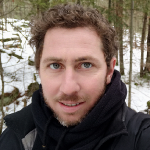 Ori Freiman (Centre for Ethics Postdoctoral Fellow in Ethics of Artificial Intelligence, 2021-22), Science & Technology Studies, Bar-Ilan University
Ori Freiman (Centre for Ethics Postdoctoral Fellow in Ethics of Artificial Intelligence, 2021-22), Science & Technology Studies, Bar-Ilan University
I have a formal background in analytic philosophy (BA) and information science (MA). I have submitted my Ph.D. thesis to the Graduate Program in Science, Technology, and Society at Bar-Ilan University, about the role of knowledge in forming trust in technology. My current research explores issues of trust and ethics in AI. I do so by focusing on emerging and disrupting AI-based technologies, and by engaging with contemporary discourses in philosophy of technology, social epistemology, and science & technology studies (STS).
Visiting Postdoctoral Fellow
Rebecca Livernois (SSHRC Postdoctoral Fellow), Philosophy, University of British Columbia
Rebecca Livernois works in the areas of environmental philosophy and the philosophy of economics. Her research centres on conceptual and methodological issues with economic approaches to environmental problems, including market-based policies and cost-benefit analyses. Her current project is on the philosophy of climate economics with a focus on climate policy recommendations established in economic models.
Doctoral Fellows in Ethics
- Aden Dur-e-Aden, PhD Candidate, Political Science
- Henry Krahn, PhD Candidate, Philosophy
Undergraduate Fellows in Ethics
- Syed Faateh Ali, Philosophy
- Cheryl Cheung, Political Science, American Studies (Ethics of AI Fellow)
- Evan Kanter, Computer Science, Ethics, Society and Law (Ethics of AI Fellow)
- Ariel LaFayette, Philosophy, Cognitive Science
Ethics of AI Lab Affiliates and Research Fellows
- please see here
- please see here
2020-21
Virtual Visiting Scholars

Teresa Heffernan, English, Saint Mary’s University
I explore the ethical and existential questions that emerge from the entanglement of the science and the fiction of robotics/AI. I am interested in why science uses fiction even as it marginalizes the literary imagination in discussions of a technological future, why the animal is so often problematically collapsed with the machine, and how the categories and narratives about robots and animals differently produce the human. Pursuing an interdisciplinary approach, I take seriously the borders between fiction and science and argue that the “ethical impulse” that emerges from a literary training in the imagination is useful preparation for thinking about new technologies.
 Morag Kersel, Anthropology, DePaul University
Morag Kersel, Anthropology, DePaul University
Professor Kersel is an archaeologist with a doctorate from the Department of Archaeology at the University of Cambridge and a master of Historic Preservation from the University of Georgia. Her research interests include the Chalcolithic and Early Bronze Age of the eastern Mediterranean and Levant, cultural heritage protection, the built environment, object biographies, museums, and archaeological tourism. Her work combines archaeological, archival and oral history research in order to understand the efficacy of cultural heritage law in protecting archaeological landscapes from looting.
Postdoctoral Fellows
 Benjamin Davis (Centre for Ethics Postdoctoral Fellow in Ethics), Philosophy, Emory University
Benjamin Davis (Centre for Ethics Postdoctoral Fellow in Ethics), Philosophy, Emory University
My research considers the responsibilities of elite actors today. My publications speak to the quotidian decisions of pre-professional and college-educated actors. Daily practices are always tied to divisions of labor across the globe (who sewed those chinos?) and within cities (who pulls espresso and sweeps donut crumbs?). I am interested in the orientations and pressures that entangle elite actors in a glass-paneled environment and the ruptures and challenges that invite them to — or demand that they — get out of it.

Juliette Ferry-Danini (Centre for Ethics Postdoctoral Fellow in Ethics of Artificial Intelligence), Philosophy, Sorbonne Université
I am a philosopher of medicine interested in conceptual, epistemological and ethical questions about medicine and science in general.
Doctoral Fellows in Ethics
- Amanda Greer, PhD Candidate, Cinema Studies
- Miriam Hird-Younger, PhD Candidate, Anthropology
Undergraduate Fellows in Ethics
- Marley Greenberg, Health Studies, Philosophy, Bioethics
- Alex Heyman, Computer Science, Cognitive Science, Philosophy
- Tsitsi Macherera, Ethics, Society and Law
- Nicole Vucemilo, History and Ethics, Society, and Law
Ethics of AI Lab Affiliates and Graduate Research Fellows
- please see here
- please see here
2019-20
Visiting Scholars

Tom Angier, Philosophy, University of Cape Town
My core interests lie in Aristotelian and Neo-Aristotelian ethical theory. While I have written on Aristotle’s ethics per se, I am also and increasingly interested in applying Aristotle’s ethics and metaphysics to current ethical debates. The kind of naturalism espoused by Aristotle affords an invaluable resource for contemporary reflection, even if, in the process, his insights and arguments must be reconfigured.
 Megan Blomfield, Philosophy, University of Sheffield
Megan Blomfield, Philosophy, University of Sheffield

Teresa Heffernan, English, Saint Mary’s University
I explore the ethical and existential questions that emerge from the entanglement of the science and the fiction of robotics/AI. I am interested in why science uses fiction even as it marginalizes the literary imagination in discussions of a technological future, why the animal is so often problematically collapsed with the machine, and how the categories and narratives about robots and animals differently produce the human. Pursuing an interdisciplinary approach, I take seriously the borders between fiction and science and argue that the “ethical impulse” that emerges from a literary training in the imagination is useful preparation for thinking about new technologies.
 Ida Koivisto, Law, University of Helsinki
Ida Koivisto, Law, University of Helsinki
Ida Koivisto is an assistant professor of public law. Her research interests cover administrative and constitutional law, legal theory and socio-legal studies. She is particularly interested in the relationship between law and other normative systems in society. She is currently working on a project on the ideal of transparency and its theoretical preconditions. She is about to embark on a new project on law and algorithmic transparency.
 Gottfried Schweiger, Centre for Ethics and Poverty Research, Paris Lodron University of Salzburg
Gottfried Schweiger, Centre for Ethics and Poverty Research, Paris Lodron University of Salzburg
Gottfried is a Senior Scientist at the Centre for Ethics and Poverty Research, University of Salzburg. He works in social and political philosophy, with a particular focus on poverty, social and global justice, migration (refugees) and childhood. Gottfried (co-)authored several peer-reviewed articles and chapters, (co-)edited volumes, and together with his former colleague Gunter Graf he wrote two monographs on the philosophy of childhood: “A Philosophical Examination of Social Justice and Child Poverty” (2015) and “Ethics and the Endangerment of Children’s Bodies” (2017), both published by Palgrave Macmillan. Gottfried is also co-founding editor of the Springer Book Series Philosophy and Poverty. He is also Associate Editor of the open access journal Palgrave Communications and member of the Advisory Board of the journal on_education.
Postdoctoral Fellows
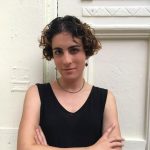 Elena Comay del Junco (Centre for Ethics Postdoctoral Fellow in Ethics), Committee on Social Thought & Department of Philosophy, University of Chicago
Elena Comay del Junco (Centre for Ethics Postdoctoral Fellow in Ethics), Committee on Social Thought & Department of Philosophy, University of Chicago

Igor Shoikhedbrod (Centre for Ethics Postdoctoral Fellow in Ethics of Artificial Intelligence), PhD, Political Science, University of Toronto
Igor’s research is principally concerned with the future of work and considerations of distributive justice in the face of increased automation and generalized reliance on intelligent machine learning. Igor’s broader research interests in the ethics of AI draw upon the rich nexus of political theory and critical political economy. Igor obtained his PhD at the University of Toronto in 2018, his M.A in Political Science from York University in 2011, and he also holds a B.A from the University of Toronto with a concentration in Ethics, Society, and Law. His doctoral thesis examined the relationship between rights discourse and economic inequality in capitalist democracies though a reconstruction of Karl Marx’s critique of classical liberalism. A revised version of Igor’s doctoral thesis is forthcoming with Palgrave Macmillan under the title of Revisiting Marx’s Critique of Liberalism: Rethinking Justice, Legality and Rights.
Doctoral Fellows in Ethics
 Natasha Hay, PhD Candidate, Centre for Comparative Literature, University of Toronto
Natasha Hay, PhD Candidate, Centre for Comparative Literature, University of Toronto
Natasha Hay is a doctoral candidate in Comparative Literature who is pursuing a disciplinary specialization in Philosophy and a collaborative program in Jewish Studies. Her doctoral
research is concerned with a constellation of concepts in the field of education that Walter Benjamin articulates in his reflections on the German youth movement. Her dissertation lays out a counter-pedagogical relation emergent in study as an ethical practice that helps to shape Benjamin’s historiographical method. Her secondary research interests include nineteenth- and twentieth-century German thought, French post-structuralism and deconstruction, and the relationship between literature and philosophy. Some research interests she is eager to explore at the C4E: historical changes in urban spaces and utopian imaginaries; the ethics of untranslatability and the geopolitics of translation; ethical modes of representing suffering and violence across image, text, and other media.
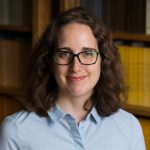 Emma McClure, PhD Candidate, Department of Philosophy, University of Toronto
Emma McClure, PhD Candidate, Department of Philosophy, University of Toronto
My research explores the ethics of conversation. My most recent publication, “Theorizing a Spectrum of Aggression: Microaggressions, Creepiness, and Sexual Assault” (Pluralist, 2019) explains what is aggressive about verbal microaggressions. In my dissertation, I turn to the question of whether we are blameworthy for microaggressions. Traditionally, we only blame people when they intentionally cause harm, whereas microaggressions are often committed unintentionally and may only become noticeably harmful after numerous repetitions. I use legal theory to model how perpetrators could be liable for these unintentional and non-immediately damaging actions. Finally, I consider the under-explored role of microaffirmations—small supports that accumulate into very positive impacts when repeated over a lifetime. Privileged people receive these benefits constantly; marginalized people deserve the same supports. Please see my website (emma-mcclure.com) for more on my research and teaching in Feminist Ethics.
Undergraduate Fellows in Ethics
 Matias Gutierrez Ramirez
Matias Gutierrez Ramirez
Matias’ main interest is in environmental ethics with particular emphasis on sustainability and climate change. He is currently pursuing a double major in Ethics, Society, and Law, and English at Trinity College at the University of Toronto.
 Nicholas Slawnych
Nicholas Slawnych
Nicholas’ main research interests lie in metaethics and ethical representation in fiction. He is especially interested in the question of why people choose to do the right thing, and he currently studies Philosophy, Ethics, Society and Law, and Russian Literature at Trinity College at the University of Toronto.
Ethics of AI Graduate Research Fellows
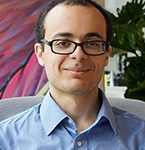 Mohamed Abdalla is a PhD student in the Natural Language Processing Group (Department of Computer Science) at the University of Toronto and a Vanier scholar, advised by Professor Frank Rudzicz and Professor Graeme Hirst. Affiliated with the Vector Institute for Artificial Intelligence, his research interests fall at the intersection of artificial intelligence and clinical medicine. A large portion of his work involves quantifying existing biases, and formalizing notions of fairness and other ethical principles in the context of clinical applications. He is also working to extend and deploy many of these approaches to other disciplines, with an ultimate goal of developing a cross-field generalizable framework.
Mohamed Abdalla is a PhD student in the Natural Language Processing Group (Department of Computer Science) at the University of Toronto and a Vanier scholar, advised by Professor Frank Rudzicz and Professor Graeme Hirst. Affiliated with the Vector Institute for Artificial Intelligence, his research interests fall at the intersection of artificial intelligence and clinical medicine. A large portion of his work involves quantifying existing biases, and formalizing notions of fairness and other ethical principles in the context of clinical applications. He is also working to extend and deploy many of these approaches to other disciplines, with an ultimate goal of developing a cross-field generalizable framework.
 Suzanne van Geuns is a third-year doctoral student in the Department for the Study of Religion. Suzanne’s doctoral research in the study of religion investigates how rightwing antifeminists instrumentalise the internet to uphold specific truths about men, women, and their differences. As an anthropologist of religion, Suzanne approaches the normative descriptively, asking what it feels like to use the internet in the aspiration to live by gender essentialist principles. She has a particular interest in how past visions for the future of internet technology – to which artificial intelligence was always key – inform its instrumentalisations today. At the Ethics of AI Lab, she will develop her work on ‘seduction’ forums catering to men and so-called biblical womanhood bloggers, using the lens of AI to surface how these online subcultures strive to ‘artificialise’ human social intelligence, aligning the self with the truth by becoming more like a computer in flawlessly acting on its commands.
Suzanne van Geuns is a third-year doctoral student in the Department for the Study of Religion. Suzanne’s doctoral research in the study of religion investigates how rightwing antifeminists instrumentalise the internet to uphold specific truths about men, women, and their differences. As an anthropologist of religion, Suzanne approaches the normative descriptively, asking what it feels like to use the internet in the aspiration to live by gender essentialist principles. She has a particular interest in how past visions for the future of internet technology – to which artificial intelligence was always key – inform its instrumentalisations today. At the Ethics of AI Lab, she will develop her work on ‘seduction’ forums catering to men and so-called biblical womanhood bloggers, using the lens of AI to surface how these online subcultures strive to ‘artificialise’ human social intelligence, aligning the self with the truth by becoming more like a computer in flawlessly acting on its commands.
 VInyas Harish is a third-year MD/PhD student at the University of Toronto. He is a graduate of the Biomedical Computing program at Queen’s University, and has recently began his PhD in Clinical Epidemiology at the Institute of Health Policy, Management and Evaluation. He is also a Doctoral Fellow in the University of Toronto’s Collaborative Specialization in Global Health. During his preclerkship medical training, Vinyas co-founded the ‘Artificial Intelligence in Medicine Student Society (@aimss_uoft) and became interested in the role of machine learning for population-level risk prediction and preparedness for global health emergencies. At the Centre for Ethics, he is interested in the development of a framework for ethical AI applications in public/global health and exploring the role of public-private partnerships in developing AI ‘solutions’ for healthcare.
VInyas Harish is a third-year MD/PhD student at the University of Toronto. He is a graduate of the Biomedical Computing program at Queen’s University, and has recently began his PhD in Clinical Epidemiology at the Institute of Health Policy, Management and Evaluation. He is also a Doctoral Fellow in the University of Toronto’s Collaborative Specialization in Global Health. During his preclerkship medical training, Vinyas co-founded the ‘Artificial Intelligence in Medicine Student Society (@aimss_uoft) and became interested in the role of machine learning for population-level risk prediction and preparedness for global health emergencies. At the Centre for Ethics, he is interested in the development of a framework for ethical AI applications in public/global health and exploring the role of public-private partnerships in developing AI ‘solutions’ for healthcare.
2018-2019
Visiting Scholars
 Benjamin Berger, Professor of Law, Osgoode Hall Law School, York University
Benjamin Berger, Professor of Law, Osgoode Hall Law School, York University
Professor Berger’s areas of teaching and research specialization are criminal and constitutional law and theory, law and religion, and the law of evidence. He holds an appointment as an Associate Professor (status only) in the Department for the Study of Religion at the University of Toronto and is a member of the faculty of the Graduate Program in Socio-Legal Studies at York University.

Beatriz Barreiro Carril, Lecturer of International Law, Rey Juan Carlos University, Madrid
Beatriz is interested in the links between International Law and other Social Sciences and Humanities as well as in applied research with a particular focus on human rights, especially cultural rights. She was guest researcher of the Department of Law & Anthropology at Max Planck Institute for Social Anthropology, Halle and visiting researcher at the Institute of Public International and European Law at the University of Göttingen.
 Patti Tamara Lenard, Associate Professor of Applied Ethics, Graduate School of Public and International Affairs, University of Ottawa
Patti Tamara Lenard, Associate Professor of Applied Ethics, Graduate School of Public and International Affairs, University of Ottawa
Patti’s research interests include democratic theory, global justice, solidarity and migration, nationalism, multiculturalism, and trust, as well as history of political and social theory.
 Ahmed Meguid, Assistant Professor, Department of Religion at Syracuse University
Ahmed Meguid, Assistant Professor, Department of Religion at Syracuse University
Ahmed’s research interests include that of Islamic thought [philosophy and theology]; late 18th, 19th, and early 20th century German philosophy (Kant, German Idealism, Dilthey, Husserl, Heidegger).
 Atsushi Moriya, BA, Literature, Waseda University, Tokyo.
Atsushi Moriya, BA, Literature, Waseda University, Tokyo.
His main research interest is in the field of business ethics in Japan as seen through the lens of the Chinese classics, the philosophies of Sun Tzu and Lao Tzu, and the writings of Shibusawa Eiichi; at the Centre he intends to examine the roots of the recent increase in interest in Chinese philosophy and the morality of Shibusawa Eiichi in western academia as well as to engage in a comparative analysis of terms such as virtue (徳, toku in Japanese and dé in Chinese) within the broader context of the relationship between Confucian and Western conceptions of virtue.
 Kimmo Nuotio, Professor of Criminal Law, University of Helsinki; Dean of Law, University of Helsinki (2010-17)
Kimmo Nuotio, Professor of Criminal Law, University of Helsinki; Dean of Law, University of Helsinki (2010-17)
Kimmo Nuotio’s central research topics include: Theoretical Foundations of Penal Liability, Modernization of Criminal Law, Nordic, European, and International Criminal Law, Transnationalization of Criminal Law, European Legal Integration, Risk Society / Welfare State / Security, Political Philosophy and Law, Criminal Law and Cultural Diversity, and Researcher Skills and Research Ethics.
Postdoctoral Fellows
 Rachel E. Cristy (Centre for Ethics Postdoctoral Fellow), PhD, Philosophy, Princeton University
Rachel E. Cristy (Centre for Ethics Postdoctoral Fellow), PhD, Philosophy, Princeton University
Rachel’s research interests are in the history of late modern philosophy, beginning with Kant and tracing his influence through early neo-Kantianism to certain late 19th century figures who are not typically thought of as successors to Kant: Nietzsche and the American Pragmatists, particularly William James. She is especially interested in late modern philosophers’ attitudes toward science, including both epistemological views (on its methods, its limitations, what sort of philosophical foundation it has or needs) and ethical views (on the proper place of science in the life of individuals and societies). Her most recent work is on Nietzsche’s and James’s objections to scientism: the attitude that science is the most valuable human enterprise and can answer any question worth asking.
 Étienne Brown (Visiting Postdoctoral Fellow)
Étienne Brown (Visiting Postdoctoral Fellow)
Étienne is currently a Postdoctoral fellow at the Montreal-based Centre de recherche en éthique (or CRÉ), where he co-directed the “Éthique et politique” research axis in the winter of 2018. He also teaches in the philosophy department of the Université de Montréal, and serves as the secretary of the Société de philosophie du Québec. Previously, he was a visiting scholar at the University of Pittsburgh and, before that, Attaché d’enseignement et de recherche (Research and Teaching Fellow) at the Sorbonne in Paris, where he completed his PhD in 2016.
Postdoctoral Associates
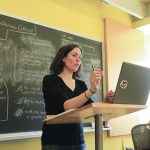 Hilary Evans Cameron, Visiting Associate, Centre for Ethics
Hilary Evans Cameron, Visiting Associate, Centre for Ethics
Hilary’s research explores decision-making in the refugee determination context with a focus on credibility assessment.
 Clifton Mark, PhD Political Theory, Cambridge University
Clifton Mark, PhD Political Theory, Cambridge University
Clifton’s research operates at the nexus of political philosophy, intellectual history, and the analysis of concrete social practices.
 Jaby Mathew, PhD Political Science, University of Toronto
Jaby Mathew, PhD Political Science, University of Toronto
Jaby’s research focuses on modern Indian thought, contemporary democratic theory, and postcolonial theory with particular attention to the ethics of comparison and translation.
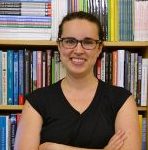 Stephanie J. Silverman, Adjunct Professor, Trinity College; SSHRC Postdoctoral Fellow, Graduate School of Public and International Affairs, Ottawa
Stephanie J. Silverman, Adjunct Professor, Trinity College; SSHRC Postdoctoral Fellow, Graduate School of Public and International Affairs, Ottawa
Stephanie’s sociolegal research on immigration enforcement focuses mainly on detention practices in Canada, the US, and the UK.
Doctoral Fellows in Ethics
 John Enman-Beech, SJD Candidate, Faculty of Law, University of Toronto
John Enman-Beech, SJD Candidate, Faculty of Law, University of Toronto
Jack’s research explores the use of contractual and non-contractual ethical frames in the fields of employment, consumer, and tenancy law. Interdisciplines include critical, feminist, and economic legal theory. Also writes about how to live with animals.
 Thilo Schaefer, PhD Candidate, Department of Political Science, University of Toronto
Thilo Schaefer, PhD Candidate, Department of Political Science, University of Toronto
Thilo’s research examines normative questions in urban politics through the perspective of utopia. His current focus is on the political and philosophical issues raised by the emergence of the smart city. He also has broader academic interests in distributive justice, property rights, and citizenship.
Undergraduate Fellows in Ethics
 Jayun Bae
Jayun Bae
Jayun’s main interests are in intersectional bioethics, particularly with regard to healthcare in the digital age, access to treatment, and emerging biotechnology. She is pursuing a double major in Neuroscience and Philosophy at Victoria College at the University of Toronto.
 Zara Narain
Zara Narain
Zara’s research interests are in the ethics of storytelling, oppression, and bioethics. She is interested in studying the stories our bodies tell and how these stories are disseminated or silenced.
Ethics of AI Graduate Research Fellows
 Atoosa Kasirzadeh, Ph.D. in mathematics (Ecole Polytechnique of Montreal), Ph.D. candidate in philosophy of science (University of Toronto)
Atoosa Kasirzadeh, Ph.D. in mathematics (Ecole Polytechnique of Montreal), Ph.D. candidate in philosophy of science (University of Toronto)
 Nishila Mehta is a first year medical student at the University of Toronto, and a recent graduate of York University’s Global Health program with a specialization in eHealth. She has diverse interests in health technology, quality improvement and health equity and has explored these through leading several research projects at Women’s College Hospital and Mount Sinai Hospital in the past. She aspires to spend her time at the Center for Ethics exploring the ethical and social implications of Artificial Intelligence in Medicine, with a specific interests in Ai’s impact on medical education and global health inequities.In the future, Nishila aspires to pursue a career as a clinician-researcher and become a leader in the Canadian health technology sector.
Nishila Mehta is a first year medical student at the University of Toronto, and a recent graduate of York University’s Global Health program with a specialization in eHealth. She has diverse interests in health technology, quality improvement and health equity and has explored these through leading several research projects at Women’s College Hospital and Mount Sinai Hospital in the past. She aspires to spend her time at the Center for Ethics exploring the ethical and social implications of Artificial Intelligence in Medicine, with a specific interests in Ai’s impact on medical education and global health inequities.In the future, Nishila aspires to pursue a career as a clinician-researcher and become a leader in the Canadian health technology sector. Michael Motala, BA Hons. (University of Toronto), MSc (London School of Economics), JD (Osgoode Hall Law School), MA (Columbia University), PhD Student (Department of Political Science, University of Toronto)
Michael Motala, BA Hons. (University of Toronto), MSc (London School of Economics), JD (Osgoode Hall Law School), MA (Columbia University), PhD Student (Department of Political Science, University of Toronto)
Michael’s research interests lie at the intersection of law, economics, political science, and pragmatist moral philosophy. He is currently working on two concurrent projects: the first reimagines extant theories of corporate social responsibility and business ethics as they apply to the emergent platform economy, comprised of firms like Uber, Airbnb, Apple, Google, and Amazon; the second examines the political economy of global tax governance in the Atlantic economies, with a particular focus on the implications of global tax base erosion for national income inequalities, and by extension the fiscal social contract underpinning the modern liberal welfare state.
2017-2018
Visiting Scholars
 Francois du Bois, B.A. LL.B., Stellenbosch; M.A. B.C.L. Oxford. Professor of Law & Head of School, School of Law, University of Leicester.
Francois du Bois, B.A. LL.B., Stellenbosch; M.A. B.C.L. Oxford. Professor of Law & Head of School, School of Law, University of Leicester.
His recent research concentrates on three intersecting themes: theoretical reflection on the concepts and doctrines of private law, the structure of South Africa’s post-1994 legal system and its institutions in historical perspective, and the jurisprudential evaluation of the tension between private and public modes of redress for individual injuries. His recent research concentrates on three intersecting themes: theoretical reflection on the concepts and doctrines of private law, the structure of South Africa’s post-1994 legal system and its institutions in historical perspective, and the jurisprudential evaluation of the tension between private and public modes of redress for individual injuries.
More Information
 Antje du Bois-Pedain, MJur. Oxford; Dr. iur. Berlin. Senior Lecturer, Faculty of Law, University of Cambridge; Deputy Director, Centre for Penal Theory and Penal Ethics (Institute of Criminology).
Antje du Bois-Pedain, MJur. Oxford; Dr. iur. Berlin. Senior Lecturer, Faculty of Law, University of Cambridge; Deputy Director, Centre for Penal Theory and Penal Ethics (Institute of Criminology).
Her main research interests are in the fields of criminal law, transitional justice, legal theory and medical law. She has published widely on criminal law and criminal justice ethics, transitional justice and penal theory. Her main research interests are in the fields of criminal law, transitional justice, legal theory and medical law. She has published widely on criminal law and criminal justice ethics, transitional justice and penal theory.
More Information
 John-Stewart Gordon, MA, Konstanz (2001); Ph.D., Göttingen (2005). Full Professor of Philosophy and Head of the Research Cluster for Applied Ethics at Vytautas Magnus University in Kaunas, Lithuania.
John-Stewart Gordon, MA, Konstanz (2001); Ph.D., Göttingen (2005). Full Professor of Philosophy and Head of the Research Cluster for Applied Ethics at Vytautas Magnus University in Kaunas, Lithuania.
He works at the intersection of ethics/moral philosophy, social- and political philosophy, and human rights. His current research project on moral expertise is funded by the Straniak Foundation and enables him to conduct his research at the Uehiro Centre for Practical Ethics at the University of Oxford (9-11.2017), the Centre for Ethics at the University of Toronto (1-4.2018), and at An Foras Feasa at Maynooth University (7-9.2018). He works at the intersection of ethics/moral philosophy, social- and political philosophy, and human rights. His current research project on moral expertise is funded by the Straniak Foundation and enables him to conduct his research at the Uehiro Centre for Practical Ethics at the University of Oxford (9-11.2017), the Centre for Ethics at the University of Toronto (1-4.2018), and at An Foras Feasa at Maynooth University (7-9.2018).
More Information
 Richard Moon, B.A. (Hons), Trent (1978); LL.B., Queen’s (1981); B.C.L., Oxford (1984). Professor of Law, University of Windsor.
Richard Moon, B.A. (Hons), Trent (1978); LL.B., Queen’s (1981); B.C.L., Oxford (1984). Professor of Law, University of Windsor.
His research focuses on freedom of expression and freedom of conscience and religion. He has written extensively about freedom of expression and freedom of religion, publishing more than fifty articles and book chapters in Canada and abroad. His research focuses on freedom of expression and freedom of conscience and religion. He has written extensively about freedom of expression and freedom of religion, publishing more than fifty articles and book chapters in Canada and abroad.
More Information
 Atsushi Moriya, BA, Literature, Waseda University, Tokyo.
Atsushi Moriya, BA, Literature, Waseda University, Tokyo.
His main research interest is in the field of business ethics in Japan as seen through the lens of the Chinese classics, the philosophies of Sun Tzu and Lao Tzu, and the writings of Shibusawa Eiichi; at the Centre he intends to examine the roots of the recent increase in interest in Chinese philosophy and the morality of Shibusawa Eiichi in western academia as well as to engage in a comparative analysis of terms such as virtue (徳, toku in Japanese and dé in Chinese) within the broader context of the relationship between Confucian and Western conceptions of virtue. His main research interest is in the field of business ethics in Japan as seen through the lens of the Chinese classics, the philosophies of Sun Tzu and Lao Tzu, and the writings of Shibusawa Eiichi; at the Centre he intends to examine the roots of the recent increase in interest in Chinese philosophy and the morality of Shibusawa Eiichi in western academia as well as to engage in a comparative analysis of terms such as virtue (徳, toku in Japanese and dé in Chinese) within the broader context of the relationship between Confucian and Western conceptions of virtue.
 Amber Riaz, B.Phil. Oxford; D.Phil. Oxford; B.Sc (Hons) LUMS. Assistant Professor, Department of Humanities and Social Sciences, Lahore University of Management Sciences.
Amber Riaz, B.Phil. Oxford; D.Phil. Oxford; B.Sc (Hons) LUMS. Assistant Professor, Department of Humanities and Social Sciences, Lahore University of Management Sciences.
Her research interests are moral epistemology, general epistemology, ethics, philosophy of science and social science, and philosophy of mind. Her research interests are moral epistemology, general epistemology, ethics, philosophy of science and social science, and philosophy of mind.
More Information
 Aaron Ancell, B.A. (Hons.) Simon Fraser (2011); Ph.D., Philosophy, Duke University (exp 2017); Postdoctoral Fellow in Ethics, Centre for Ethics, University of Toronto.
Aaron Ancell, B.A. (Hons.) Simon Fraser (2011); Ph.D., Philosophy, Duke University (exp 2017); Postdoctoral Fellow in Ethics, Centre for Ethics, University of Toronto.
Aaron’s primary research interests lie in ethics and political philosophy. His current work focuses on political disagreement, polarization, and the epistemic merits of democracy. Aaron’s primary research interests lie in ethics and political philosophy. His current work focuses on political disagreement, polarization, and the epistemic merits of democracy.
More Information
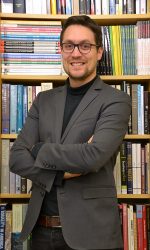 Thomas Ferretti, Ph.D. Philosophy, Louvain (2016).
Thomas Ferretti, Ph.D. Philosophy, Louvain (2016).
He specializes in political philosophy, distributive justice and economic ethics. His current research focuses on inequalities and the regulation of economic organizations. He specializes in political philosophy, distributive justice and economic ethics. His current research focuses on inequalities and the regulation of economic organizations.
More Information
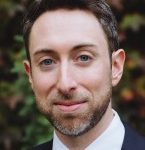 Ryan Liss, B.A. (Hons) Toronto (2007); J.D. Toronto (2011); LL.M. Yale (2013). J.S.D. candidate, Yale Law School.
Ryan Liss, B.A. (Hons) Toronto (2007); J.D. Toronto (2011); LL.M. Yale (2013). J.S.D. candidate, Yale Law School.
Ryan Liss works in public international law and criminal law, examining the ways in which human rights both construct and constrain state power. He has previously published in the areas of international humanitarian law, international human rights law, and the law concerning the use of force. Ryan Liss works in public international law and criminal law, examining the ways in which human rights both construct and constrain state power. He has previously published in the areas of international humanitarian law, international human rights law, and the law concerning the use of force.
More Information
Postdoctoral Associates
 Hilary Evans Cameron, B.A. (Hons) McGill (1998), LL.B. Osgoode Hall (2001), called to the Ontario Bar (2003), S.J.D. University of Toronto (2016).
Hilary Evans Cameron, B.A. (Hons) McGill (1998), LL.B. Osgoode Hall (2001), called to the Ontario Bar (2003), S.J.D. University of Toronto (2016).
Her research explores decision-making in the refugee determination context with a focus on credibility assessment. Her research explores decision-making in the refugee determination context with a focus on credibility assessment.
More Information

Mara Marin, Ph.D. Political Science, University of Chicago.
Her research interests are in feminist theory, social theory, social contract tradition, theories of justice, oppression, domination gender subordination authority, political obligation and history of political thought. Her research interests are in feminist theory, social theory, social contract tradition, theories of justice, oppression, domination gender subordination authority, political obligation and history of political thought.
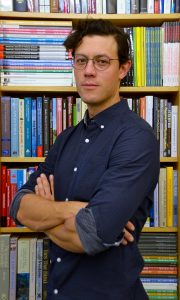 Clifton Mark, Ph.D. Political Theory, Cambridge University.
Clifton Mark, Ph.D. Political Theory, Cambridge University.
His research operates at the nexus of political philosophy, intellectual history, and the analysis of concrete social practices. His research operates at the nexus of political philosophy, intellectual history, and the analysis of concrete social practices.
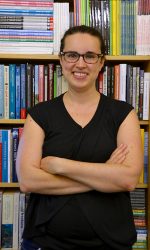
Stephanie J. Silverman, B.A. Toronto; M.A. York; D.Phil. Oxford. Adjunct Professor, Trinity College; SSHRC Postdoctoral Fellow, Graduate School of Public and International Affairs, Ottawa.
Her sociolegal research on immigration enforcement focuses mainly on detention practices in Canada, the US, and the UK.
Her sociolegal research on immigration enforcement focuses mainly on detention practices in Canada, the US, and the UK.
Doctoral Fellows Doctoral Fellows
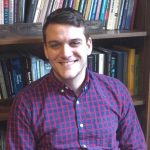 Jeremy Davis, B.A. Missouri-Columbia; Ph.D. Candidate in the Department of Philosophy.
Jeremy Davis, B.A. Missouri-Columbia; Ph.D. Candidate in the Department of Philosophy.
His research is in ethics and political philosophy, and is currently focusing on the intersection between national partiality and the ethics of war. He also has research interests in bioethics and philosophy. His research is in ethics and political philosophy, and is currently focusing on the intersection between national partiality and the ethics of war. He also has research interests in bioethics and philosophy.
More Information
 Simon Lambek, Ph.D. Candidate in the Department of Political Science.
Simon Lambek, Ph.D. Candidate in the Department of Political Science.
Simon’s research lies at the intersection of critical, hermeneutic and rhetorical theory. His dissertation explores the relationship between rhetoric and critical reflection and builds toward a critical theory of rhetoric. He has broad interests in modern and contemporary political theory. Simon’s research lies at the intersection of critical, hermeneutic and rhetorical theory. His dissertation explores the relationship between rhetoric and critical reflection and builds toward a critical theory of rhetoric. He has broad interests in modern and contemporary political theory.
More Information
Undergraduate Fellows Undergraduate Fellows Madelin Burt-D’Agnillo
Madelin Burt-D’Agnillo
She is interested in studying the intersections between public life and personal choice or autonomy, critically considering the influence that culture and political environment have on shaping individuals’ understanding of truth and justice.
She is interested in studying the intersections between public life and personal choice or autonomy, critically considering the influence that culture and political environment have on shaping individuals’ understanding of truth and justice.
 Lorina Hoxha
Lorina Hoxha
Her main interests are in feminist theory, political theory, social movements, and more recently, theories of the commons. Her research at the centre this year will focus on housing ethics. Her main interests are in feminist theory, political theory, social movements, and more recently, theories of the commons. Her research at the centre this year will focus on housing ethics.
2016-2017
Visiting Scholars:
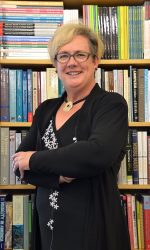 Samantha Brennan, Professor, Department of Women’s Studies and Feminist Research, Western University; member, Rotman Institute of Philosophy; and member, graduate faculty, Departments of Philosophy and Political Science.
Samantha Brennan, Professor, Department of Women’s Studies and Feminist Research, Western University; member, Rotman Institute of Philosophy; and member, graduate faculty, Departments of Philosophy and Political Science.
Her main research interests lie in the area of contemporary normative ethics, particularly at the intersection of deontological and consequentialist moral theories, and active research interests in feminist ethics.
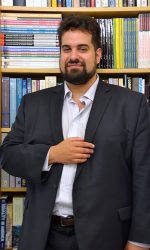 Johann Frick, B.Phil., Oxford (2008); Ph.D., Harvard (2014). Department of Philosophy and The University Center for Human Values, Princeton.
Johann Frick, B.Phil., Oxford (2008); Ph.D., Harvard (2014). Department of Philosophy and The University Center for Human Values, Princeton.
His primary research interests lie in moral philosophy, political philosophy, and bioethics. His current work focuses on population ethics, the concept of interpersonal justification, and the ethics of risk imposition.
Kerah Gordon-Solmon, B.A. (McGill), M.Phil (Cambridge), D.Phil (Oxford).
Her research interests lie in political philosophy and practical ethics. Her work focuses, in particular, on questions of egalitarian distributive justice and on the ethics of killing in self- and other-defense. She has also written on desert, and on the parameters of permissible human genetic enhancement.
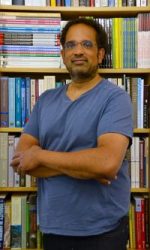 Rahul Kumar, B.A. (Queen’s), B.Phil, D.Phil (OXON) Specialization: Moral/ethical theory, moral psychology, political philosophy.
Rahul Kumar, B.A. (Queen’s), B.Phil, D.Phil (OXON) Specialization: Moral/ethical theory, moral psychology, political philosophy.
His principle research interest is in contemporary moral theory, and in particular, the development, and exploration of the implications, of a plausible non-consequentialist approach to understanding moral reasoning for both issues between rival moral theories, and for substantive issues in normative moral and political philosophy.
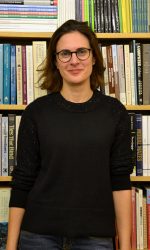 Vida Panitch, Ph.D. (Toronto), M.A. (Toronto), B.A. (McGill). Her research interests lie in the areas of distributive justice and bioethics.
Vida Panitch, Ph.D. (Toronto), M.A. (Toronto), B.A. (McGill). Her research interests lie in the areas of distributive justice and bioethics.
Her work explores the extent to which the concepts of equality, exploitation and commodification can serve as normative guides to the just distribution of health-related goods and services, both domestically and internationally.
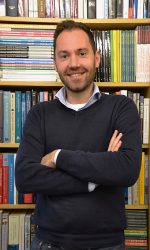 Laurens van Apeldoorn, Assistant Professor in Philosophy and Tutor, Faculteit Governance and Global Affairs, Leiden University College The Hague.
Laurens van Apeldoorn, Assistant Professor in Philosophy and Tutor, Faculteit Governance and Global Affairs, Leiden University College The Hague.
He specialises in contemporary political theory and the history of political thought, most recently on the moral and political philosophy of Thomas Hobbes.
 Adrian Viens, BA (Hons), BPhil, PhD, FHEA, Associate Professor in Law, Deputy Director, Centre for Health Ethics and Law (HEAL), Co-Director Public Health Ethics and Law (PHEL).
Adrian Viens, BA (Hons), BPhil, PhD, FHEA, Associate Professor in Law, Deputy Director, Centre for Health Ethics and Law (HEAL), Co-Director Public Health Ethics and Law (PHEL).
His main areas of research and teaching focus on ethics, legal theory and public policy, especially public health ethics and law.
Postdoctoral Fellows:
 Thomas Ferretti, PhD Philosophy, Louvain (2016).
Thomas Ferretti, PhD Philosophy, Louvain (2016).
He specializes in political philosophy, distributive justice and economic ethics. His current research focuses on inequalities and the regulation of economic organizations.
Clifton Mark, PhD Political Theory, Cambridge University.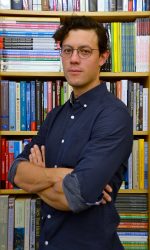
His research operates at the nexus of political philosophy, intellectual history, and the analysis of concrete social practices.
 Chris Tenove, PhD Political Science, University of British Columbia.
Chris Tenove, PhD Political Science, University of British Columbia.
He is a SSHRC Postdoctoral Research Fellow at Centre for Ethics and Munk School of Global Affairs, University of Toronto. He studies international relations and political theory, with an emphasis on issues of global governance and global justice.
Postdoctoral Associates:
 Hilary Evans Cameron, B.A. (Hons) (McGill) 1998, LL.B. (Osgoode Hall) 2001, called to the Ontario Bar in 2003, SJD (University of Toronto) 2016.
Hilary Evans Cameron, B.A. (Hons) (McGill) 1998, LL.B. (Osgoode Hall) 2001, called to the Ontario Bar in 2003, SJD (University of Toronto) 2016.
Her research explores decision-making in the refugee determination context with a focus on credibility assessment.
 Mara Marin, PhD Political Science, University of Chicago.
Mara Marin, PhD Political Science, University of Chicago.
Her research interests are in feminist theory, social theory, social contract tradition, theories of justice, oppression, domination gender subordination authority, political obligation and history of political thought.
 Stephanie Silverman, Adjunct Professor, Trinity College and a SSHRC Postdoctoral Fellow, Graduate School of Public and International Affairs, Ottawa.
Stephanie Silverman, Adjunct Professor, Trinity College and a SSHRC Postdoctoral Fellow, Graduate School of Public and International Affairs, Ottawa.
Doctoral Fellows:
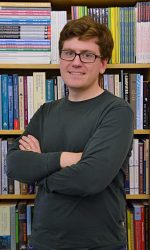 Teddy Harrison, PhD Candidate in the Department of Political Science.
Teddy Harrison, PhD Candidate in the Department of Political Science.
His dissertation proposal is: Criminal Justice, Indigenous People, and Political Power in Canada, with Supervisor, Melissa Williams.
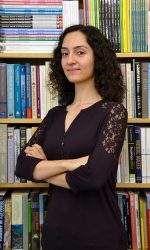 Parisa Moosavi, PhD Candidate in the Department of Philosophy (expected 2018).
Parisa Moosavi, PhD Candidate in the Department of Philosophy (expected 2018).
Her dissertation is: A Biologically-Grounded Neo-Aristotelian Ethical Naturalism, with Supervisors: Sergio Tenenbaum and Denis Walsh.
Undergraduate Fellows:
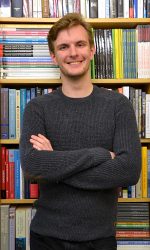 Sasha Boutilier is pursuing a specialist in Political Science, major in Ethics, Society, and Law, and minor in Canadian Studies. Indigenous rights have been a key area of academic interest, leading to a strong interest in constitutional law, environmental ethics, international human rights law, and transnational business governance. Sasha is one of this year’s Queen Elizabeth II Diamond Jubilee Scholar, working at the University of New South Wales’ Indigenous Law Centre researching Indigenous land tenure reform and the United Nations Declaration.
Sasha Boutilier is pursuing a specialist in Political Science, major in Ethics, Society, and Law, and minor in Canadian Studies. Indigenous rights have been a key area of academic interest, leading to a strong interest in constitutional law, environmental ethics, international human rights law, and transnational business governance. Sasha is one of this year’s Queen Elizabeth II Diamond Jubilee Scholar, working at the University of New South Wales’ Indigenous Law Centre researching Indigenous land tenure reform and the United Nations Declaration.
2015-2016
Visiting Scholars:
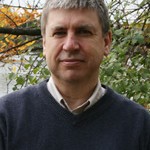 John Bishop, Trent University, Peterborough, ON. His area of interest is ethics and justice as applied to business, capitalism, sustainability and advertising. He is also interested in 18th century British ethics, especially Locke, Hutcheson, Hume and Adam Smith.
John Bishop, Trent University, Peterborough, ON. His area of interest is ethics and justice as applied to business, capitalism, sustainability and advertising. He is also interested in 18th century British ethics, especially Locke, Hutcheson, Hume and Adam Smith.
 William Conklin, Law and Philosophy, University of Windsor. His areas of expertise are in Phenomenology, Legal Theory, International Human Rights Law, and Constitutional Law
William Conklin, Law and Philosophy, University of Windsor. His areas of expertise are in Phenomenology, Legal Theory, International Human Rights Law, and Constitutional Law
 Noya Rimalt, Law, University of Haifa. . Her scholarship examines the intersections of gender, law and feminism in both legal theory and practice.
Noya Rimalt, Law, University of Haifa. . Her scholarship examines the intersections of gender, law and feminism in both legal theory and practice.
 Cristina Rodriguez, Law, Yale University. Her research interests include constitutional law and theory; immigration law and policy; administrative law and process; language rights and policy; and citizenship theory.
Cristina Rodriguez, Law, Yale University. Her research interests include constitutional law and theory; immigration law and policy; administrative law and process; language rights and policy; and citizenship theory.
Postdoctoral fellows:
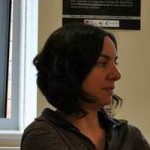 Avigail Ferdman, PhD School of Public Policy and Government, The Hebrew University of Jerusalem (August 2015). Her research interests are Distributive Justice, Ronald Dworkin, Political Liberalism, Liberal Egalitarianism, Egalitarian distributive justice, and Political Perfectionism,
Avigail Ferdman, PhD School of Public Policy and Government, The Hebrew University of Jerusalem (August 2015). Her research interests are Distributive Justice, Ronald Dworkin, Political Liberalism, Liberal Egalitarianism, Egalitarian distributive justice, and Political Perfectionism,
 Ronit Levine-Schnur, PhD Law, The Hebrew University of Jerusalem. Her research focuses on property and contract law, with particular emphasis on land ownership.
Ronit Levine-Schnur, PhD Law, The Hebrew University of Jerusalem. Her research focuses on property and contract law, with particular emphasis on land ownership.
 Mara Marin, PhD Political Science, University of Chicago. Her research interests are in feminist theory, social theory, social contract tradition, theories of justice, oppression, domination gender subordination authority, political obligation and history of political thought.
Mara Marin, PhD Political Science, University of Chicago. Her research interests are in feminist theory, social theory, social contract tradition, theories of justice, oppression, domination gender subordination authority, political obligation and history of political thought.
 Clifton Mark, PhD Political Theory, Cambridge University. His research operates at the nexus of political philosophy, intellectual history, and the analysis of concrete social practices. He will be teaching two Ethics courses during the year.
Clifton Mark, PhD Political Theory, Cambridge University. His research operates at the nexus of political philosophy, intellectual history, and the analysis of concrete social practices. He will be teaching two Ethics courses during the year.
 Chris Tenove , PhD Political Science, University of British Columbia. He is a SSHRC Postdoctoral Research Fellow at Centre for Ethics and Munk School of Global Affairs, University of Toronto. He studies international relations and political theory, with an emphasis on issues of global governance and global justice.
Chris Tenove , PhD Political Science, University of British Columbia. He is a SSHRC Postdoctoral Research Fellow at Centre for Ethics and Munk School of Global Affairs, University of Toronto. He studies international relations and political theory, with an emphasis on issues of global governance and global justice.
Undergraduate Fellows:
Jennifer Commisso, Victoria College, Double Major in Political Science and Ethics, Society & Law.
Michael Luoma, Trinity College. Philosophy and moral philosophy.
Victoria Wicks, Trinity College, Double Major in Political Science and Ethics, Society & Law.
2014-2015 in Residence at the Centre for Ethics
Visiting Faculty:
François Tanguay-Renaud, Law, Osgoode Hall, York University. His research interests include criminal law theory, public law theory and associated areas of political and moral theory; jurisprudence; emergencies and the law; war ethics; international law.
Blain Neufeld, Philosophy, University of Wisconsin-Milwaukee. His research interests include liberal political philosophy, theories of justice, citizenship and public reason.
Darryl Robinson, Law, Queen’s University. His research focuses on issues in international criminal law.
Jörn Lamla, Department of Scociology, Faculty of Social Sciences, University of Kassel. His research interests include social theory, the relation of consumer society and democracy, citizenship and issues of privacy in the digital world. March-August 2015
William Smith, Department of Government and Public Administration
The Chinese University of Hong Kong
Research interest in the area of contemporary political philosophy, with a particular focus on issues related to democratic theory and the ethics of political protest.
April 19-24, 2015
Postdoctoral fellows:
Julian Culp, Philosophy and Economics, PhD Goethe University Frankfurt. His research focuses on issue of global justice and development.
Ronit Levine-Schnur, Law, PhD Hebrew University of Jerusalem. Her research focuses on property and contract law, with particular emphasis on land ownership.
David Horst, The Martin Buber Society of Fellows, The Hebrew University of Jerusalem
Areas of Specialization: Philosophy of Mind and Action, Metaethics (esp. theories of normativity and moral psychology). March-April 2015
Chris Tenove, SSHRC Postdoctoral Research Fellow
Centre for Ethics and Munk School of Global Affairs
University of Toronto
Undergraduate fellows:
Arash Ghiassi, Major in Ethics Society and Law, interested in the relation between normative ethics and different conceptions of practical rationality.
Megan Moniz, Major in Ethics, Society & Law and Peace, Conflict & Justice Studies, interested in law and morality at the international level.
Past
2013-2014
Visiting Faculty:
Andrew Botterell is Associate Professor in the Department of Philosophy and Faculty of Law at the University of Western Ontario. He is a graduate of the Faculty of Law, University of Toronto, and received his Ph.D in Philosophy from the Massachusetts Institute of Technology. His areas of specialization are Philosophy of Law, Metaphysics and Philosophy of Mind. He teaches both Philosophy and Law at UWO and is the author of numerous scholar articles.
Amir Farmanesh is Assistant Professor of Policy Studies with the Wilder School of Government and Public Affairs at the Virginia Commonwealth University. He received his Ph.D in Policy Studies, International Development Policy, from the University of Maryland, College Park, School of Public Policy. He currently serves as a research co-PI for the World Bank Governance Group focusing on the comparative governance and anticorruption policies of six east African countries..
Carolyn McLeod is Associate Professor of Philosophy at the University of Western Ontario.She received her M.A in Philosophy from Queen’s University, and her Ph.D, with specialization in Ethics, Bioethics, and Feminist Theory, from Dalhousie University in 1999. She currently holds a CIHR operating grant for a project that aims to give a feminist analysis of conscientious refusals in reproductive health care. She is the author of numerous scholarly articles as well as the book /Self-Trust and Reproductive Autonomy/ (Cambridge, MA: MIT Press, 2002).
Shlomi Segall is Associate Professor at the Joint Program in Politics, Philosophy and Economics (PPE) at the Hebrew University of Jerusalem. He received his D.Phil from Oxford in 2004. He is the author of Health, Luck, and Justice (Princeton: Princeton University Press, 2010), and most recently Equality and Opportunity (Oxford University Press, 2013).
Post-Doctoral Fellows:
Margaret Bowman (Ph.D. Philosophy, University of Utah) continues her Postdoctoral Fellowship in Normative Theory. She will teach ETH220H1F, Moral Psychology, and ETH210H1S, Rationality & Action, during the year.
Dominic Martin (Ph.D. Philosophy, Université de Montréal/Université Catholique de Louvain) continues his Postdoctoral Fellowship in Philosophy and Economics at the Centre for Ethics.
Undergraduate Fellows:
Matthew Oliver is an undergraduate student at Trinity College. He is enrolled in the Philosophy specialist program with a particular focus on political and moral philosophy in the areas around theories of freedom and questions of meta-ethics and value theory.
Alice Tsai is an undergraduate student at Victoria College, majoring in Ethics, Society and Law. Her interests lies in exploring the limits of reason as justification for moral principles and in trying to find a new basis of reconciliation for the radical plurality of worldviews.
2012-2013
Visiting Faculty:
Christine Tappolet is Professor of Philosophy and holds the Canada Research Chair in Ethics and Metaethics at the Université de Montréal. She received her M. Phil from the University of London in 1992, her PhD from the University of Geneva in 1996, and has taught at the Université de Montréal since 1997. She is the author of numerous scholarly articles, as well as two books: Émotions et valeurs (PUF, 2000), and with Ruwen Ogien, Les concepts de l’éthique: faut-il être conséquentialiste? (Éditions Hermann, 2009).
Steven Lee is Professor of Philosophy and Donald R. Harter ’39 Professor in the Humanities at Hobart and William Smith Colleges (Geneva, New York). He received both his BA and MA in Philosophy from the University of Delaware, and his PhD from York University. He has authored a number of scholarly articles and books, including Morality, Prudence, and Nuclear Weapons (Cambridge, 1996), and most recently Ethics and War (Cambridge, 2012).
Post-Doctoral Fellows:
Margaret Bowman received her PhD from the Department of Philosophy at the University of Utah in 2012, an MA from Columbia University in 2001 and a BA from the University of Pittsburgh in 1997. In her dissertation titled “Are Our Goals Really What We’re After?” Bowman examines the relationship between long term goals and short term decision making, arguing that a commitment to long term goals is not necessarily a commitment to achieving them. She holds the Centre for Ethics Postdoctoral Fellowship in Normative Theory.
Dominic Martin is a political philosopher who received his BA and MA from the Université de Montréal, and recently received his PhD in Philosophy from the Université de Montréal and the Université Catholique de Louvain. He is currently working on a project called “Instrumental Rationality and Public Policies: How to Shape Economic Agents’ Practices” where he aims to put forward four types of measure (instrumental, volitional, epistemic and socio-normative) to help public officials develop effective economic policies. He holds the Centre for Ethics Postdoctoral Fellowship in Philosophy and Economics.
Hege Finholt is a political philosopher who received her PhD from the Department of Philosophy at Boston University, as well as her Candidata Philologiae from the University of Oslo. In her dissertation, entitled “State Sovereignty and National Self-Determination – A Reconsideration,” Finholt examines the underlying assumptions held by two important theories in international relations: realism and neoliberal institutionalism. She will be at the Centre for Ethics all year.
John Grant is a political theorist who received his Ph.D. in the department of Politics at Queen Mary College, University of London, and an M.A. in Political Studies from Queens University. He is currently working on a project called “Lived Fictions: The Politics of Collective Imagination”. He has published in Contemporary Political Theory and Science & Society. He is also the author of Dialectics and Contemporary Politics: Critique and Transformation from Hegel through Post-Marxism (Routledge, 2011).
James Arthur Sherman was born in New York City, NY. He received his A.B. in Interdisciplinary Studies in the Humanities from the University of Chicago. In May 2011 he received his Ph.D. in philosophy from the University of Texas at Austin, where his dissertation, “Toward an Aristotelian Liberalism,” was nominated for the University’s Outstanding Dissertation Award. His work has been published in Ethical Theory and Moral Practice and The Oxford Journal of Legal Studies. In the fall of 2011, he joined the Department of Philosophy and the Centre for Ethics at the University of Toronto as a SSHRC Postdoctoral Fellow.
Kathryn Walker is a SSHRC postdoctoral research fellow. Her research draws on analytic political philosophy and critical theory, asking how gender realities and feminist philosophy inform our ideas about justice. Her doctoral dissertation takes a similar approach to Hegel’s political philosophy. She is the co-editor, with Will Kymlicka, of Rooted Cosmopolitanism: Canada and The World (UBC Press, 2012). She received her PhD from Social and Political Thought at York University and was the Democracy and Diversity fellow at Queen’s University.
Undergraduate Fellows:
Abdi Aidid is an undergraduate student at the University of Toronto who is studying Political Science and History. His primary interest is to explore Giorgio Agamben’s “state of exception” through the lens of value theory, looking at whether the law retains intrinsic and instrumental value during the period.
Alexandra Robertson is an undergraduate student at the University of Toronto, specializing in Political Science and majoring in Environmental Ethics. Her primary interest is in bringing the fields of political philosophy and environmental ethics into dialogue with one another, and discerning the implications for the philosophical foundations of each field.
2011-2012
Theresa Lee is Associate Professor of Political Science at Guelph University. She received her BA from the University of Toronto, and her Ph.D. from Princeton University. She specializes in political theory (contemporary continental thought, feminist theory) and Chinese politics. She is the author of various scholarly articles, as well as Politics and Truth: Political Theory and the Postmodernist Challenge (SUNY, 1997). She will be at the Centre for Ethics all year.
Chris MacDonald is an Associate Professor (Tenured) in the Philosophy Department at Saint Mary’s University (Halifax, Canada) and Coordinator of SMU’s M.A. Programme in Philosophy. He is also a Nonresident Senior Fellow at Duke University’s Kenan Institute for Ethics, and is currently a Visiting Scholar at the Clarkson Centre for Business Ethics and Board Effectiveness at the Rotman School of Management. He was named one of the “100 Most Influential People in Business Ethics” for both 2008 and 2009, by Ethisphere Magazine. He conducts research in business & professional ethics and health care ethics (including work on ethical issues in the biotechnology and nanotechnology industries) and foundational issues in moral theory. He is currently writing a book on ethical issues in the biotech industry, and will be at the Centre of Ethics all year.
Christine Tappolet is Professor of Philosophy and holds the Canada Research Chair in Ethics and Metaethics at the Université de Montréal. She received her M. Phil from the University of London in 1992, her PhD from the University of Geneva in 1996, and has taught at the Université de Montréal since 1997. She is the author of numerous scholarly articles, as well as two books: Émotions et valeurs (PUF, 2000), and with Ruwen Ogien, Les concepts de l’éthique: faut-il être conséquentialiste ? (Éditions Hermann, 2009). She will be at the Centre for Ethics during the fall term, 2011.
Post Doctoral
John Grant is a political theorist who received his Ph.D. in the department of Politics at Queen Mary College, University of London, and an M.A. in Political Studies from Queens University. He is currently working on a project called “Lived Fictions: The Politics of Collective Imagination”. He has published in Contemporary Poltical Theory and Science & Society and he is the author of Dialectics and Contemporary Politics: Critique and Transformation from Hegel through Post-Marxism (Routledge, 2011). He will be at the Centre for Ethics all year.
James Arthur Sherman was born in New York City, NY. He received his A.B. in Interdisciplinary Studies in the Humanities from the University of Chicago. In May 2011 he received his Ph.D. in philosophy from the University of Texas at Austin, where his dissertation, “Toward an Aristotelian Liberalism,” was nominated for the University’s Outstanding Dissertation Award. His work has been published in *Ethical Theory and Moral Practice* and *The Oxford Journal of Legal Studies*. In the fall of 2011, he joined the Department of Philosophy and the Centre for Ethics at the University of Toronto as a SSHRC Postdoctoral Fellow. He will be at the Centre all year.
Kathryn Walker is a SSHRC postdoctoral research fellow. Her research draws on analytic political philosophy and critical theory, asking how gender realities and feminist philosophy inform our ideas about justice. Her doctoral dissertation takes a similar approach to Hegel’s political philosophy. Together with Will Kymlicka she edited Rooted Cosmopolitanism: Canada and The World, which will be available in 2012. She received her PhD from Social and Political Thought at York University and was the Democracy and Diversity fellow at Queen’s University. She will be at the Centre all year.
Doctoral
Cameron Sabadoz is a Ph.D. Candidate in the Department of Political Science at the University of Toronto. His current research is in charting how certain new political discourses, such as corporate social responsibility and corporate citizenship, enable regulatory practices of Foucauldian governmentality. Some of his scholarly work is forthcoming in the Journal of Business Ethics. His graduate studies have been supported by the Social Science and Humanities Research Council and the Ontario Graduate Scholarship program. Before coming to the University of Toronto, Cameron completed Bachelors (Humanities) and Masters (Political Science) degrees from Carleton University. He will be at the Centre all year.
Jacob Weinrib is a Ph.D. Candidate in the Department of Philosophy at the University of Toronto. He received his B.A., M.A, and J.D. from the University of Toronto. He is currently completing a dissertation on the philosophic foundations of public law, the juridical relationship between a state and its members. His publications can be accessed here. He will be at the Centre all year.
2010-2011
Sofia Garcia Beyaert, Visiting Fellow, 2011
Jodie Boyer Hatlem, Doctoral Fellow, 2010-11
Luke Gelinas, Doctoral Fellow, 2010-11
Ian Greene, Visiting Professor, 2010-11
Ramin Jahanbegloo, Research Fellow, 2008-13
Margaret (Peggy) Kohn, Department of Political Science | In Residence, 2009-11
Mark Migotti, Visiting Faculty Fellow, 2010-11 | Department of Philosophy
Richard Moon, Visiting Professor, 2010-11 | Faculty of Law
Agnieszka Polakowska, Doctoral Fellow, 2010-11
Wibren van der Burg, Visiting Fellow, 2011
2009-2010
Rachel Bryant, Doctoral Fellow, 2009-10
Corneliu Bjola, SSHRC Postdoctoral Fellow, 2008-10
Chris Essert, Visiting Doctoral Fellow, 2009-10
Keith Hyams, Visiting Faculty Fellow, 2009-10
Joanne Lau, Visiting Doctoral Fellow, 2010 | Department of Philosophy
Andrea Paras, Doctoral Fellow, 2009-10 | Department of Political Science
Robin Shoaps, Visiting Faculty Fellow, 2009-10 | Department of Anthropology
Darren R. Walhof, Visiting Professor, 2010 | Department of Political Science
2008-2009
Burke Hendrix, Visiting Faculty Fellow, 2008-09
Xavier Landes, SSHRC Postdoctoral Fellow, 2008-09 | Department of Philosophy
Doug MacKay, Doctoral Fellow, 2008-09 | Department of Philosophy
Dennis McKerlie, Visiting Faculty Fellow, 2008-09 | Department of Philosophy
Pierre-Yves Néron, Postdoctoral Fellow, 2007-09 | Department of Philosophy
Kristen Rundle, Doctoral Fellow, 2008-09 | Faculty of Law
2007-2008
Danielle Bromwich, Doctoral Fellow, 2007-08
Angus Dawson, Visiting Faculty Fellow, 2007-08
Markus Dubber, Visiting Faculty Fellow, 2007-08
Victoria Freeman, Doctoral Fellow, 2007-08 | Department of History
Mary Liston, Postdoctoral Fellow, 2006-08
Amit Ron, Postdoctoral Fellow, 2006-08
2006-2007
Ratna Rueban Balasubramaniam, Postdoctoral Research Fellow, 2006-07
Alon Harel, Visiting Faculty Fellow, 2006-07
Rinku Lamba, Doctoral Fellow, 2006-07 | Department of Political Science
Sarah Clark Miller, Visiting Faculty Fellow, 2006-07
Jonathan Peterson, Doctoral Fellow, 2006-07 | Department of Philosophy

